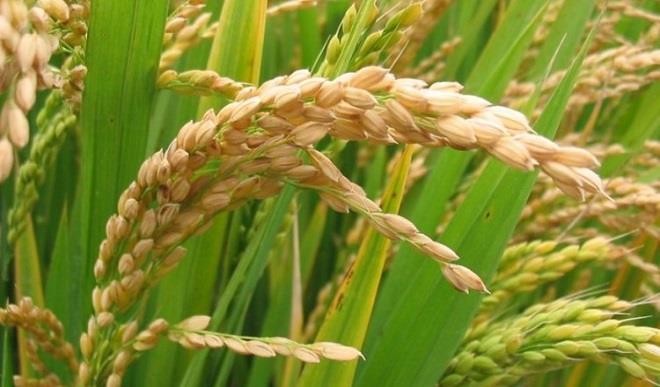‘Low prices spell doom for wheat production’
How will you describe the challenges wheat farmers in the country face at the moment? They are very numerous; not only on wheat production, but some other crops as well. However, in wheat production specifically, our challenge is stability in market, stability in price, and then the issue of having the right quality seeds. Actually, […]


How will you describe the challenges wheat farmers in the country face at the moment?
They are very numerous; not only on wheat production, but some other crops as well. However, in wheat production specifically, our challenge is stability in market, stability in price, and then the issue of having the right quality seeds.
Actually, wheat is not like any other crop. Example, if you take maize to the market, you can sell it at a go. But when you take 10 bags of wheat to the market, you can’t sell them all because it’s a kind of crop whereby there are specific industries that mill the crop under the Flour Millers Association of Nigeria (FMAN).
What is the price of wheat now?
The Memorandum of Understanding (MoU) we had with FMAN is that each year we have to sit down and negotiate and agree on a price. Last two years, it was successful, and then this year we are still bargaining on the price. The cry of the farmers last year was basically as a result of the millers off-taking at the rate of N180, 000 per metric tonne. Later, it dropped to N145, 000 per metric tonne, resulting to the farmers lament.
This year we are still bargaining and the price they offered to us, which is N120, 000 per metric tonne, falls down from last year’s price and it is not acceptable to the farmers, but we are still negotiating.
Why is it difficult to stabilise the price of wheat in Nigeria?
It is not easy because there is a lot of competition. Majority of members of FMAN are importing wheat cheaper than what is locally processed.
How can government deal with this?
The only way government can reduce wheat importation is to do what other countries are doing; to give subsidy at the end of the production.
Secondly, government has to improve on mechanization so that the cost of production will reduce. Thirdly, we have what we call guarantee minimum price. Government is expected to intervene in the wheat market to ensure stability. Example, the millers are saying they want to buy at N120, 000 per tonne, government can ask the millers to buy at N160, 000 or N145, 000; then they can give balance of that payment as subsidy so that farmers can produce another year.
Many farmers are seriously discouraged at the moment because of the poor price.
What is the quantity of wheat Nigeria produces annually?
The gap between the demand and production is too alarming because what the country needs now is 4.4 million metric tonnes and what we are producing is less than one million metric tonnes. We need to rise to expectation and give all the necessary support to farmers in order to produce more to meet the demand of the nation and possibly export.
What are the challenges of growing wheat?
Sincerely speaking, wheat is the easiest crop a farmer can grow because it doesn’t need much water, fertiliser and weeding. The only difficulty in growing wheat in Nigeria is that we are still using local methods to cultivate and harvest.
This is because we don’t have the machinery to go into large scale cultivation.
Wheat, as I told you earlier, is different from other crops because it needs a combined harvester or multipurpose threshers if you want to go for quality. If you say you are going to continue in the traditional way of beating the wheat, a large quantity of the grains may break; going down as waste. So it’s a kind of crop that needs mechanization.
Secondly, mechanization will reduce the cost of production, and thirdly the wholesalers will buy it at an affordable price and the farmer will be happy at the price he sells. But if a famer suffers buying petrol at high prices for irrigation, because it’s an irrigational crop, putting hard labour to do the job and at the end of the day, waste about 30 per cent of what he is supposed to produce, how do you expect him to sell at a cheaper price? But when they give these farmers machinery to harvest, they will be happy and successful and they can give out to the market very qualitative product at a good price.
What about quality seeds?
Sincerely, we don’t have certified wheat seeds in Nigeria, but we have what we call Foundation Seed, and it can last for some years, but it’s not supposed to last more than three years. That is why I keep on appealing to the research institute saddled with the responsibility for developing wheat seeds to continue to develop seeds in an interval of two years so that farmers can be getting fresher, high- yielding varieties at every interval of two years.
